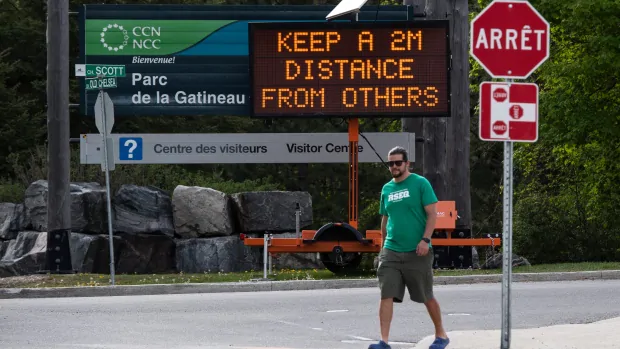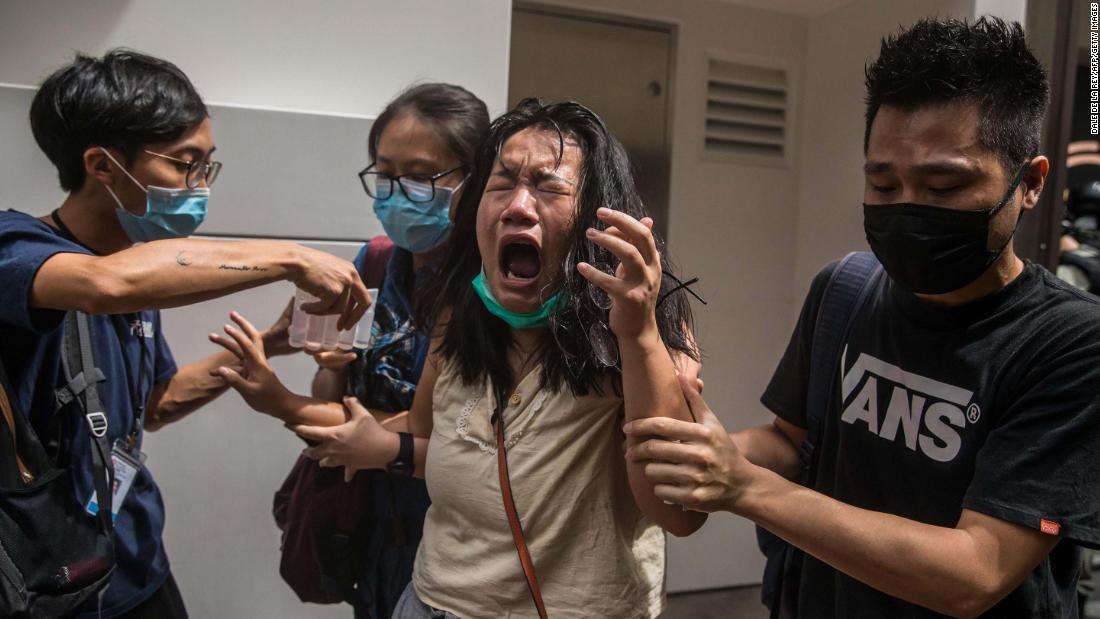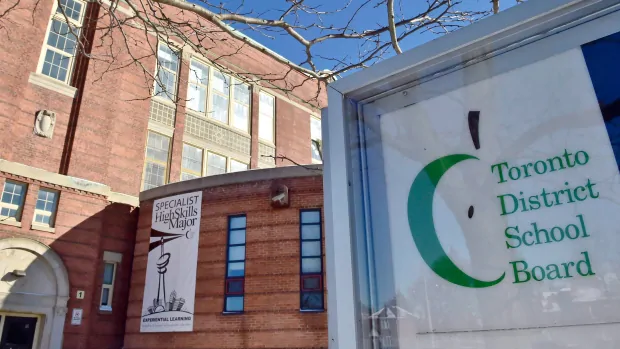Gatineau, Que., and the MRC des Collines-de-l’Outaouais are being upgraded to the maximum level on Quebec’s COVID-19 alert scale, which brings a set of new restrictions on people and businesses.
The decision to move these areas to “red alert” comes amid a significant increase in new cases being reported in the Outaouais and a growing number of outbreaks at hospitals and long-term care homes, western Quebec’s health unit said Saturday.
“Given what we know about the epidemiological evolution in these territories, such a decision is necessary,” Quebec Health Minister Christian Dubé said in a press release.
“We want to prevent a too marked increase in transmission and an expansion into adjacent communities, by limiting contact between people. We are thus giving ourselves every chance of slowing down the spread of the virus throughout Quebec.”
The Outaouais region reported 53 new cases of COVID-19 on Saturday after setting new records earlier in the week.
Quebec now recommends its residents not travel outside of the province. Nor should they move between red, orange or yellow zones within Quebec, except for essential trips.
New rules for restaurants, private gatherings
Some of the province’s restrictions for regions at the maximum alert level include:
- A ban on gatherings at private homes with visitors from different households, with exceptions for single people, caregivers and labour for already-planned work.
- Indoor dining at bars and restaurants is prohibited. Take-out and delivery services can continue.
- Being less than two metres apart is prohibited. Masks will be mandatory during demonstrations.
- Houses of worship and venues for events like funerals and weddings will have a 25-person limit.
- Hair salons, hotels and other personal care businesses will stay open.
- All organized sports and recreational activities are suspended.
Despite the red alert level, schools will remain open. However, all students in high schools must wear a mask at all times on school grounds, including while in classrooms.
To reduce the number of people in schools, some secondary students will go to school every other day.
Some of those measures will take effect as of 12:01 a.m. Sunday, while others, particularly those concerning schools and sports activities, will take effect on Thursday, Oct. 15. For a full list of restrictions, people can visit the Quebec government’s website.
Bringing things in line with Ottawa
Under the heightened alert level, Gatineau’s performance halls, theatres and galleries will all be closed, the city said in a news release Saturday afternoon.
Libraries will remain open, with the same hours as before, but only to loan out material. Municipal sports facilities will be open for individual workouts, but all organized sports will be halted as of Oct. 15, the city said.
The Canadian Museum of History has also decided to temporarily close.
In an interview Saturday, Dubé said the decision to move western Quebec from orange to red was made in order to bring the region in line with Ottawa, where restrictions were also reimposed this weekend.
“In the orange zone, we were still open. So there is a need to adjust and be consistent, to be coherent … The pairing of Gatineau and Ottawa is very important,” Dubé said.
That sentiment was echoed by Brigitte Pinard, public health director for the Outaouais health authority.
“If we have measures that are too different [on] both sides of the river, we can increase the risk of transmission,” Pinard said.

‘Lots of concerns’
In nearby Chelsea, Que., Mayor Caryl Green said her town is concerned both about the health risks associated with interprovincial travel and the economic challenges the new measures pose.
“It’s very hard for our local businesses. Certainly, with the colder weather the patios will be closing,” Green said. “Also [they’ll have to] lay off their staff. So lots of concerns for the local economy.”
Green said there’s been discussion among local politicians and public health officials about the possibility of police checkpoints like the ones set up during the pandemic’s first wave being reintroduced.
The province has not yet said the checkpoints, which were erected to discourage travel, will reappear.

Devoted web advocate. Bacon scholar. Internet lover. Passionate twitteraholic. Unable to type with boxing gloves on. Lifelong beer fanatic.





